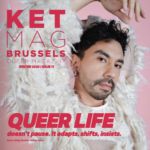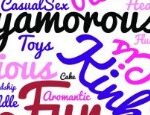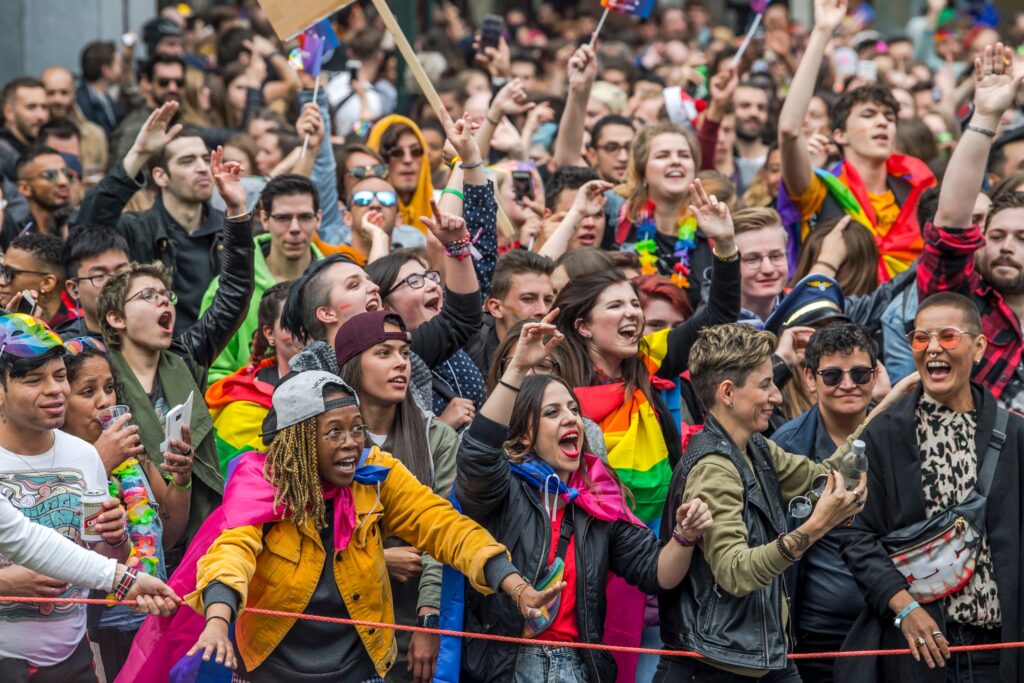Queer is a term that has a long history and whose meaning seems to be evolving constantly.
In recent decades, it has been claimed and reclaimed by different groups within the community, it has been used to name TV programmes such as Queer Eye for a Straight Guy or series like Queer As Folk, and it was also adopted by academia in the fields of queer studies and queer theory.
KET declares itself a queer magazine, so we thought it was important to explain how we understand and use the word queer.
Where queer comes from and how it evolved
We can trace the word ‘queer’ back to 16th century England. It was used to refer to something oblique or off-centre.
It is sometimes said that the word was imported from Scotland or from a low-German speaking territory.
The meaning of ‘queer’ slowly evolved in the following centuries to refer to something strange or weird.
In the 19th century, the term started to be used to describe men that did not conform to the accepted norm of masculinity. At the beginning of the 20th century, queer started to be used as an insult to refer to homosexual men.
The term ‘queer’ began to be reclaimed at the beginning of the 1980s. LGBT activists began to use the term in a positive way to refer to everyone that is ‘strange’ and weird’ – that is, everyone that was outside the sexual and gender binary norms. In that sense, ‘queer’ would refer to everyone within the LGBTQI+ community.
However, some activists – highlighting that the community was dominated by white cisgender gays and lesbians who were taking all the spotlight – started to use the term ‘queer’ to refer only to underrepresented groups within the LGBT community. In this context, ‘queer’ was used to describe Trans and Non-binary people. Queer was also used as in intersectional term – referring inclusively to people of colour, people with disabilities, or marginalised people. ‘Queer’ can be a way to describe people within the LGBT minority.
Concurrently, the term ‘queer’ was increasingly being used in academic fields of study, where it was seen as a more inclusive description. In the 1990s, we saw the development of queer theory – an approach within queer studies that challenged the socially binary constructed categories used to classify the diversity of sexual and gender identities – male/female, men/women or straight/gay, but also other binaries such as monogamous/polyamourous or able/disabled. Queer theory tries to bring a different perspective on how we approach the concepts of sex, gender or sexual orientation.
Today, all these meanings of the word queer coexist and can create some confusion.
Queer is still used:
- as an insult in the sense of “undesirably unusual”, weird, deficient. For that reason, it is rejected by some people within the community.
- to recognise the diversity of all LGBTI+ people, becoming an umbrella term that can replace the acronym.
- to refer to some specific groups within the community that are seen as underrepresented, in order to increase the focus on their situation.
- to refer, in the meaning of the academic concept of queer theory, to a non-binary approach to study – describing the concepts of sex, gender, sexual and romantic orientation, and sexuality in general.
How does KET use the term ‘queer’?
KET recognises the diversity of meanings, uses and interpretations of the term ‘queer’. Our approach is to use ‘queer’ in a positive way to refer to the full diversity of the LGBTQI+ community, aiming to represent all the aspects and dimensions of this diversity.
KET also embraces a ‘queer’ approach on the topics it covers – focussing on the people beyond their classification as belonging to one category or another. It aims to participate in the movement that questions the barriers that these categories create in order to break and to move beyond the limitations they create.
In that sense, KET hopes to participate in building a more open and more inclusive world for all.
Listen to KET Talks Podcasts now on Spotify, YouTube, IGTV, Deezer and Apple Podcasts!
Enjoy this second episode of the Brussels queer podcast and feel free to give us your feedback on Facebook and Instagram.
You may also like
-

The New KET Is Out: Queer Brussels Keeps Moving
KET Magazine Issue 11 is out now and available in LGBTQIA+ safe spaces across Brussels,
-

Brussels Art Guide 2026: Mapping a Vibrant Contemporary Scene
Brussels is once again putting its contemporary art scene in the spotlight with the new
-

What is Sex-Positive Belgium?
Sex-Positive Belgium is a growing, real-life community of open-minded people who embrace a sex-positive philosophy. It welcomes
-

“Bi+ Equal: Europe’s First Platform Uniting Bi+ Communities Across Borders”
Bi+ Equal is the first-ever bi+ structure at the European level, a new platform created
-

“From Borders to Belonging: How Arc-en-Ciel International Guides LGBTQIA+ Migrants to Safety and Community”
Arc-en-Ciel International Rainbow (AIR) is an online platform created for and with LGBTQIA+ migrants, refugees

